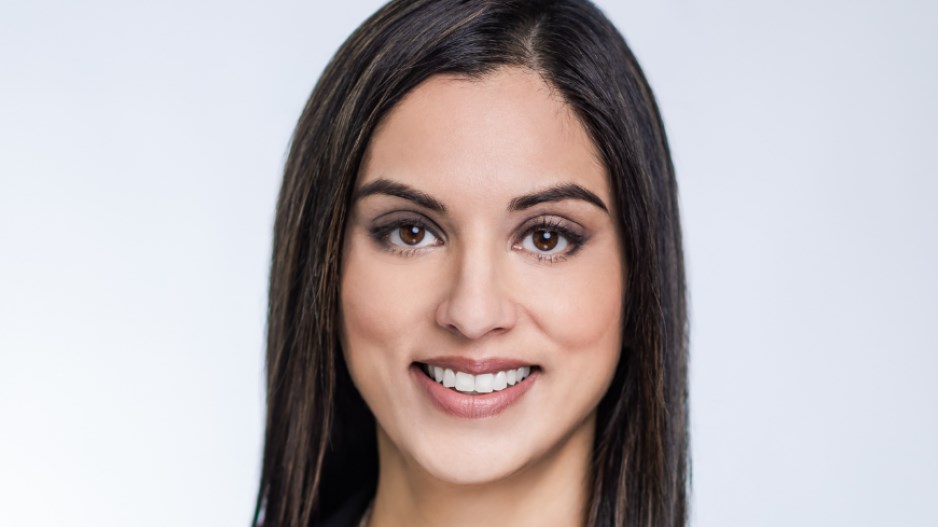Imagine being told women wearing pants at work was verboten.
You’d likely think to yourself, “We’re talking about the 1940s, right?”
Wrong.
That scenario happened to Sheryne Mecklai – not 80 years ago, but in the 1990s when she first entered the world of finance.
“I laughed. I thought, ‘Are you kidding me? You can’t wear pants?’ I just thought of it as a custom and at that time you just accepted it,” says Mecklai.
Fast-forward to 2022 and we in Canadian society are, by and large, in a different place. There is no longer a need to “accept it.”
And while instances such as the one Mecklai faced may seem minor in nature at first, that thinking and workplace culture needs constant re-evaluation, introspection and eventually, change.
Mecklai is now a partner with Manning Elliott Vancouver.
“When the issue of gender equality became more of a talking point, as a woman who’s successful in her career, I felt a bit defensive,” Mecklai says. “But when I did the research, looked at the issue a bit more closely and did some self-evaluation, I realized there were things along the way that I just accepted. Because I just accepted those things, I didn’t realize that they were actually an issue.”
In light of September being Gender Equality Month, Mecklai is re-tracing her steps through her career and taking stock: where we’ve come from, where we’re at and where we need to go as a society to ensure no one is left behind due to artificial barriers such as gender, race and sexual orientation.
Manning Elliott is working towards creating a work environment where everyone has the opportunity to advance and succeed in their career and not be limited by these artificial barriers.
“At Manning Elliott, we want to provide the opportunity to succeed to everyone,” Mecklai says. “There are many people who are qualified, but maybe they’re shy, they weren’t present in the office on a particular day, or for some other reason they are not automatically identified as someone who could take on a particular initiative.” Manning Elliott holds all its leaders accountable to ensure that everyone has an opportunity to advance – it is a part of their culture.
The financial firm is celebrating women’s achievements and empowering decisions and knowledge sharing through its “Women Wealth and the Future” committee.
An example of the committee’s work centres around a scenario involving an elderly couple. The male breadwinner, who was responsible for all of the couple’s financial planning, passed away leaving his widow to navigate a future full of terms and concepts she doesn’t fully understand.
“We need to think about how we speak to that person, the terminology used and to ensure we are explaining things in a coherent manner,” Mecklai says. “If not, we are missing the boat with an opportunity to educate and empower our client.”
Alongside her parents, Mecklai grew up in a household with two sisters. There were no inherent rules or expectations that the three girls would be tasked with dishes, laundry or other household chores traditionally assigned to women in past generations.
“I mowed the lawn right after I did the dishes, we weren’t gender specific in our chores or our tasks,” Mecklai says. “Our parents wanted us to get a job, get a career, get in the workforce and work our butts off. The fact that we are girls did not change that.”
There are still subtle issues found in a workplace that may seem like next to nothing at first blush. Picture a group of employees who want to talk about little other than football or specifically choosing that their weekend night out for drinks be exclusively “for the boys.” It might seem innocent enough in the moment, but those types of activities can be exclusionary.
“If you’re not involved in those conversations, social situations and things that lead to work-related outings, that can stall your career advancement,” Mecklai says. “Did I miss out on opportunities? Absolutely. But I do think men and the workplace have changed for the better. I think we have come a long way and there are a lot of things to celebrate, but we’re not done.”




